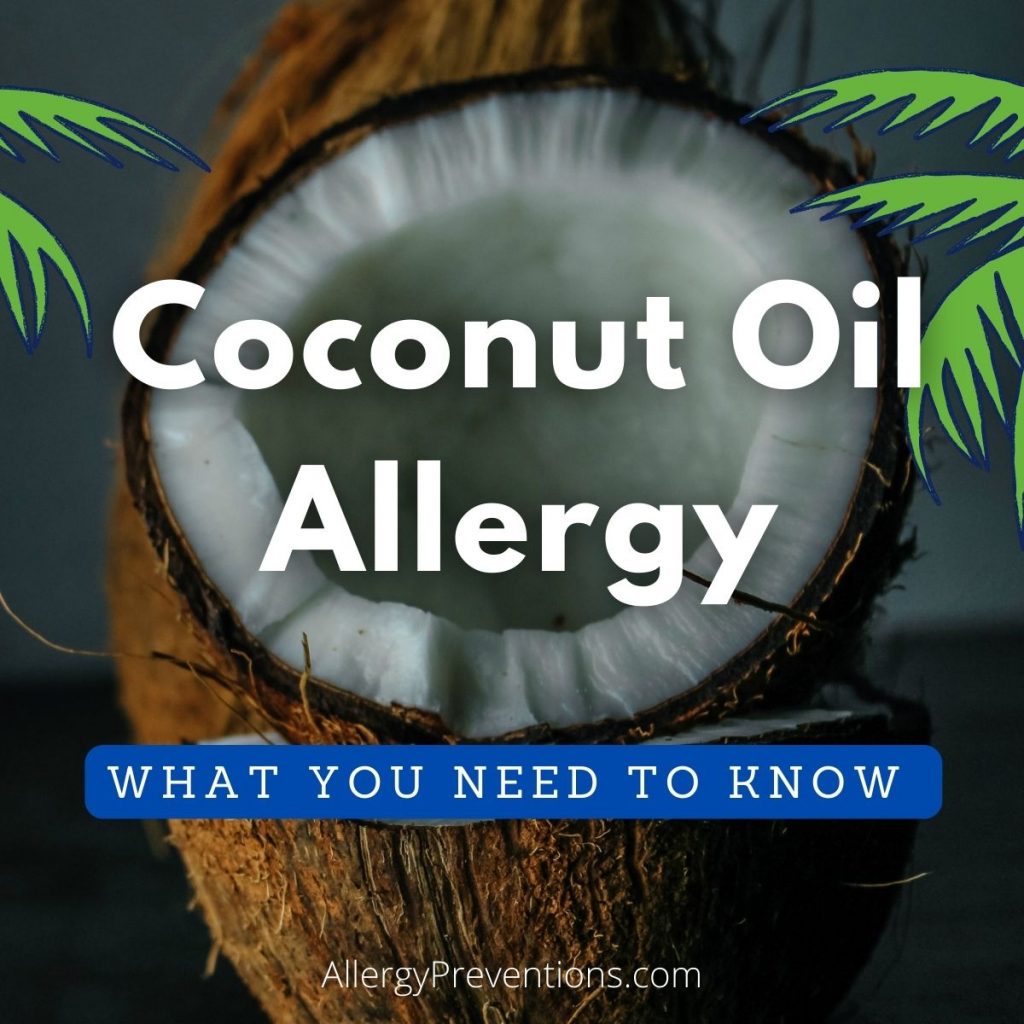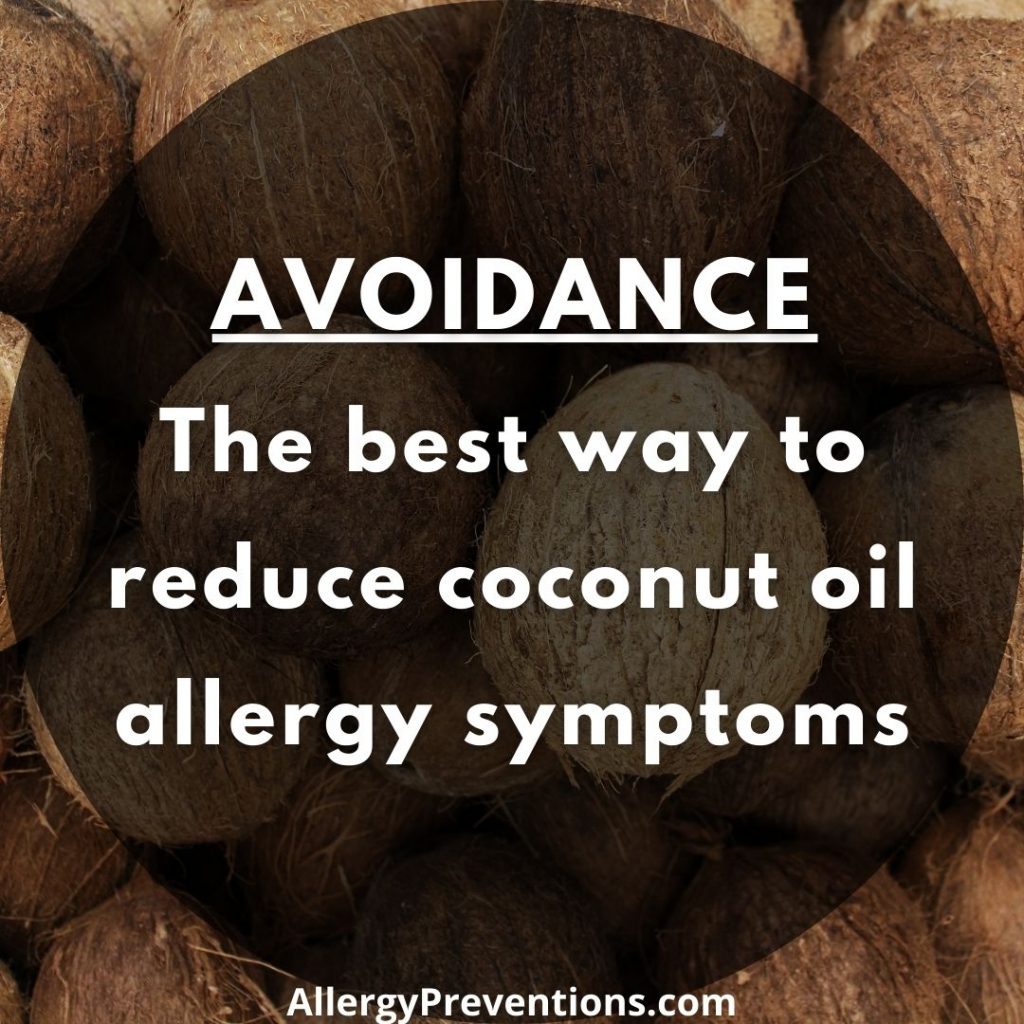Coconut oil is a popular natural remedy for many conditions, but some people experience allergic reactions to it (coconut oil allergy). If you are one of those people, it’s important to know what coconut oil allergies look like and how to treat them. In this blog post, we will discuss everything you need to know about coconut oil allergies!

What is a coconut oil allergy?
A coconut oil allergy is a reaction that occurs when your body comes into contact with coconut oil. Coconut oil allergies can range from mild to severe, and they can cause a variety of symptoms including itchiness, redness, swelling, and difficulty breathing.
What are the most common symptoms of a coconut oil allergy?
The most common symptoms of a coconut oil allergy are itchiness, redness, and swelling. If you experience any of these symptoms after coming into contact with coconut oil, it is recommended to discuss diagnosis and treatment options with your doctor.
Testing & Diagnosis
If you think you may have a coconut oil allergy, the best thing to do is see a doctor or allergist. They will likely perform a skin prick test, blood test, or an oral food challenge to determine if you are allergic to coconut oil.
Skin Prick Test
A skin prick test is when a small amount of coconut oil is placed on your skin and a needle is used to prick the skin underneath. If you are allergic to coconut oil, you will typically develop a red, itchy bump within 15 minutes.
Blood Test
A blood test can also be used to test for coconut oil allergies. This involves taking a sample of your blood and sending it to a laboratory for analysis. The results of a blood test can take a few days to a week to come back.
Oral Food Challenge
An oral food challenge is when you eat small amounts of coconut oil to see if you have a reaction. This test is typically done in a doctor’s office or hospital, as it can be dangerous if you have a severe coconut oil allergy.
How is a coconut oil allergy treated?
Coconut oil allergies can be treated with a variety of methods, depending on the severity of the reaction. For mild reactions, over-the-counter antihistamines may be sufficient. More severe reactions may require prescription medication or even hospitalization.
There is no one-size-fits-all solution to coconut oil allergies, but with proper diagnosis and treatment, most people are able to manage their symptoms and live relatively normal lives.
If you think you may be allergic to coconut oil, the best thing you can do is see a doctor or allergist for proper testing and treatment.
Preventing coconut oil allergies

There is no guaranteed way to prevent coconut oil allergies, but there are some things you can do to reduce your risk. If you have a family history of allergies, you may be more likely to develop an allergy to coconut oil. You can also reduce your risk by avoiding coconut products if you know you are allergic to them.
What are coconut oil uses?
Coconut oil is a versatile natural ingredient that can be used in a variety of ways. Some of the most popular coconut oil uses include cooking, skincare, and hair care. Coconut oil is a healthy alternative to other cooking oils, and it can be used to prepare both sweet and savory dishes.
Coconut oil is also a great moisturizer for the skin, and it can be used to treat a variety of skin conditions. coconut oil can also be used as a styling agent for hair, and it can help to improve the health and appearance of hair.
Is there coconut oil in beauty products?
While coconut oil is a popular ingredient in many beauty products, it’s not always listed as an ingredient. If you’re allergic to coconut oil, be sure to check the labels of any beauty products you use to make sure they don’t contain coconut oil. If you are still having a reaction to the product, stop using it and call the manufacturer.
Can I still eat coconut if I’m allergic to coconut oil?
If you’re allergic to coconut oil, you may still be able to eat coconut. However, it’s best to check with your doctor or allergist first to make sure that you won’t have a reaction. You may also want to avoid eating coconut if you have a severe allergy to coconut oil.
Final Thoughts
Coconut oil allergies are relatively rare, but they can be very serious. If you think you may be allergic to coconut oil, the best thing you can do is see a doctor or allergist for proper testing and treatment. With the right diagnosis and treatment, most people with coconut oil allergies can manage their symptoms and live relatively normal lives.
Need more on coconut allergies?
Check out my Coconut Allergy Guide & Coconut Derivatives Allergy articles for even more coconut allergy information.
